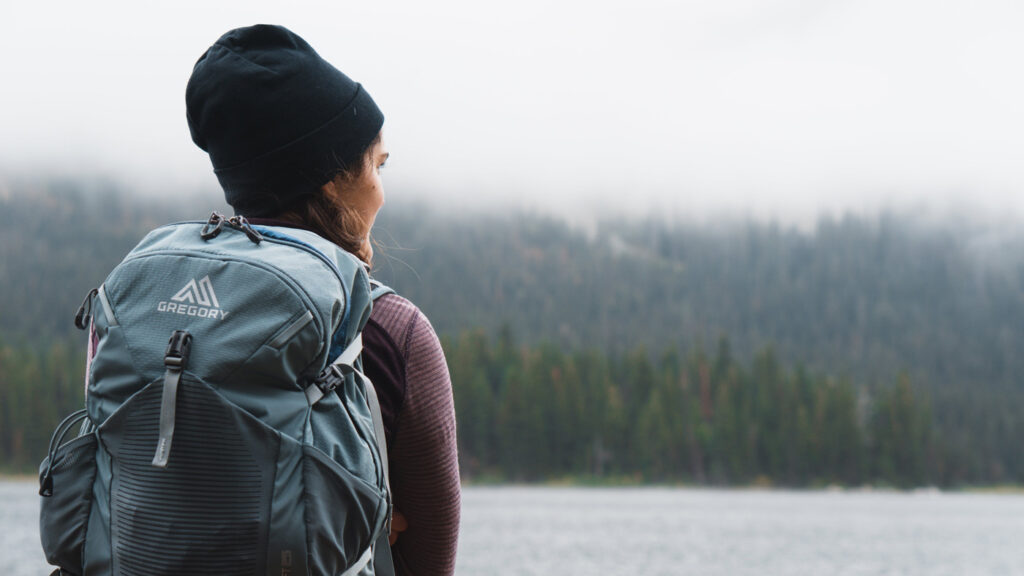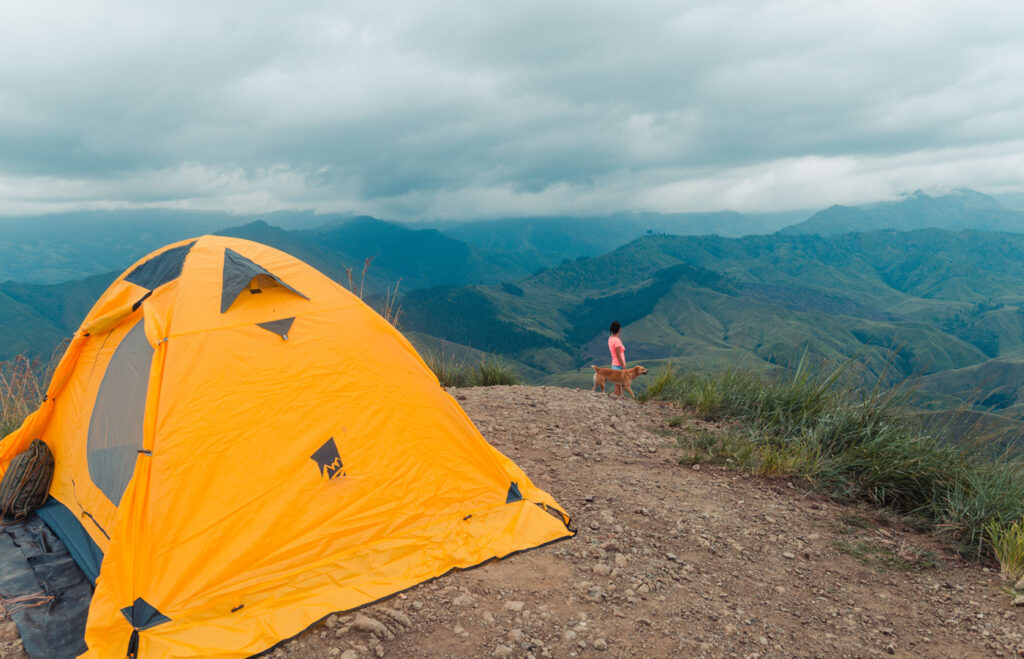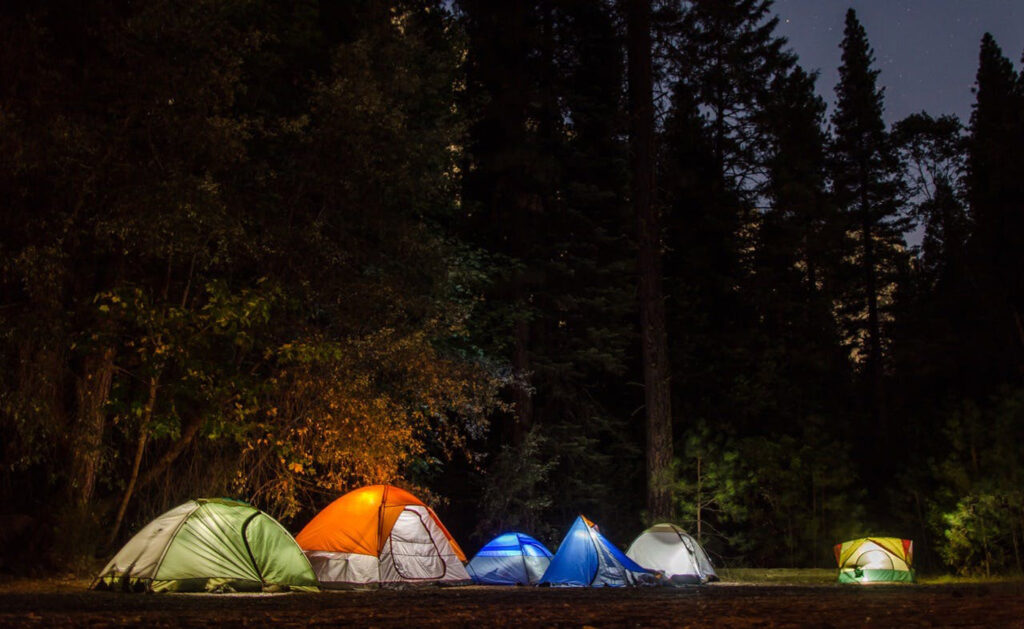Camping in the mountains offers the opportunity to immerse yourself in nature, disconnect from the daily routine and enjoy time outdoors. However, to ensure a comfortable and safe experience, it is essential to choose the right equipment. From the choice of tent to the selection of clothing and cooking utensils, every detail counts. Here’s a detailed guide to help you select the right gear for your next camping adventure.
1. Type of camping, the basis of your adventure
The choice of tent is critical to the success of your camping experience. Consider the size you need depending on the number of people you will be accompanying and choose a waterproof tent if you plan to camp in rainy weather. Also, consider the season; some tents are designed specifically for summer, others for winter and some are versatile all year round.
2. Weather and season, plan ahead
The sleeping bag is one of the most critical items on any camping trip. Be sure to select one that is appropriate for the expected temperature. Sleeping bags are classified by season: summer, three seasons and winter. Choosing the right one will ensure comfortable and restful nights in the middle of nature.
3. Transport and weight, light is the key to success
If your camping adventure involves hiking or long trips, lightweight equipment becomes a crucial consideration. Opt for tents, sleeping bags and cooking equipment that are lightweight and compact. Reducing weight not only makes transport easier, but also makes hiking more comfortable and less strenuous.
4. Proper footwear, essential for exploring
Hiking boots are your connection to the natural environment. Make sure you choose a pair that is durable, comfortable and suitable for the type of terrain you plan to explore. Waterproofing and good traction are key features that will protect you from variable conditions and provide stability during your hike.
5. Portable cooker, feeding in nature
The choice of cooker and cooking utensils is essential for enjoying satisfying meals in the middle of nature. Opt for portable cookers that work efficiently and are easy to carry. Lightweight, multifunctional cookware will allow you to prepare food effectively without overloading your equipment. So, now you have an idea of what food to prepare for camping.
6. Sunscreen and insect repellent, care for your skin
Sun exposure and insect bites are common concerns while camping. Be sure to bring broad-spectrum sunscreen and insect repellent to protect your skin. These items are essential to ensure your comfort and prevent health problems related to excessive sun exposure or insect bites.
7. Lighting, seeing in the dark
Proper lighting is essential for evenings at the campsite. LED lanterns are an excellent choice due to their energy efficiency and light weight. Make sure you carry enough spare batteries and, if possible, a rechargeable torch to reduce waste generation.
8. Water system, safe hydration
Hydration is key to any outdoor activity. Carry a water purification system with you, either in the form of portable filters or purification tablets. This will allow you to access drinking water from natural sources and ensure you stay hydrated without relying on external supplies.
9. Appropriate clothing, layering for all seasons
Choosing the right clothing is essential to adapt to changing weather conditions. Opt for a layering system that allows you to adjust your clothing according to temperature fluctuations. Include waterproofs and thermal clothing if you expect adverse weather conditions.
10. Maps and navigation, explore with confidence
Effective navigation is crucial during camping. Take detailed maps of the area you plan to explore, a reliable compass or GPS device. Familiarise yourself with the route before setting out and follow the directions to avoid getting lost.
11. First-aid kit, prepared for emergencies
Never underestimate the importance of a first aid kit. It includes basic items such as bandages, disinfectant, painkillers and any necessary personal medication. This kit can make all the difference in emergency situations and ensure a quick and effective response to minor injuries.
12. Rubbish bags, respect nature
Part of enjoying nature is preserving it. Bring rubbish bags to pack and transport your waste responsibly. Leave no trace and follow sustainable practices to minimise your impact on the natural environment.
13. Practice time, ensures the functionality of the equipment
Before embarking on your camping adventure, spend time practising with your equipment. Set up the tent, test the cooker and make sure everything is working properly. This will not only familiarise you with your equipment, but will also allow you to address any problems before you arrive at your destination.
14. Terrain conditions, adapting equipment to the terrain
If you plan to camp in specific conditions, such as snow or desert, adapt your equipment accordingly. Terrain conditions can vary significantly, and having the right equipment will improve your safety and comfort.
15. Respect for the environment, leave only footprints
Finally, practice respect for the environment at every step of your camping adventure. Follow local regulations and conservation guidelines. Avoid campfires in off-limits areas and use portable cookers for cooking. Take your waste with you and, if possible, participate in clean-up activities to preserve the natural beauty of the area.
Ultimately, choosing the right camping gear comes down to careful planning and consideration of your needs and the environment you’ll be venturing into. With the right equipment and a respectful mindset, you are ready to embark on an unforgettable experience in the great outdoors – enjoy your camping and the beauty the great outdoors has to offer!






Leave a Reply